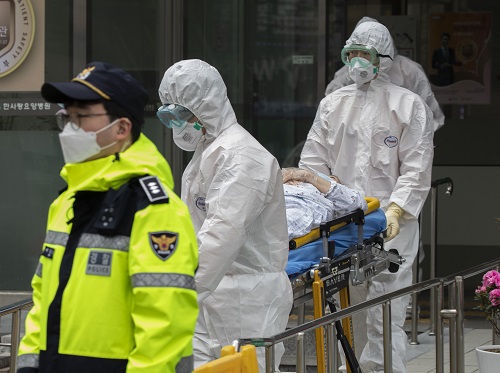

While Covid-19 is mainly a respiratory infection, the virus may also attack the linings of blood vessels, causing inflammation and damage
<p>
<strong>People who have recovered from Covid-19, especially those with pre-existing cardiovascular conditions, may be at risk of developing blood clots due to a lingering and overactive immune response, according to a study.</strong></p>
<p>
The study, led by researchers from the Nanyang Technological University in Singapore, found that recovered Covid-19 patients had twice the normal number of circulating endothelial cells (CECs) that had been shed from damaged blood vessel walls.<br />
<br />
The elevated levels of CECs indicate that blood vessel injury is still apparent after recovering from viral infection.<br />
<br />
The recovered Covid-19 patients also continued to produce high levels of cytokines — proteins produced by immune cells that activate the immune response against pathogens — even in the absence of the virus.<br />
<br />
Unusually high numbers of immune cells, known as T cells, that attack and destroy viruses were also present in the blood of recovered Covid-19 patients.<br />
<br />
The presence of both cytokines and higher levels of immune cells suggest that the immune systems of recovered Covid-19 patients remained activated even once the virus was gone, revealed the findings published in the peer-reviewed scientific journal eLife.<br />
<br />
The researchers hypothesise that these persistently activated immune responses may attack the blood vessels of recovered Covid-19 patients, causing even more damage and increasing the risk of blood clot formation further.<br />
<br />
&quot;While Covid-19 is mainly a respiratory infection, the virus may also attack the linings of blood vessels, causing inflammation and damage. Leakage from these damaged vessels triggers the formation of blood clots that may result in the sort of complications seen in the patients during hospitalisation,&quot; said Florence Chioh, research assistant at NTU&#39;s Lee Kong Chian School of Medicine.<br />
<br />
The study &quot;makes a strong case for the close monitoring of recovered Covid-19 patients, especially those with pre-existing cardiovascular conditions like hypertension and diabetes who have weakened blood vessels,&quot; said Christine Cheung, Assistant Professor at NTU&#39;s Lee Kong Chian School of Medicine.<br />
<br />
The team collected and analysed blood samples from 30 Covid-19 patients a month after they had recovered from the infection and were discharged from hospital.</p>
<p>
<em>(IANS)</em></p>
Australia's High Commissioner to India, Philip Green OAM, called Yoga one of India's gifts to…
The Bharat Sanchar Nigam Limited (BSNL) has announced the soft launch of BSNL Quantum 5G…
The Indian Embassy in Iran has said that the embassy will make efforts to evacuate…
India's gross direct tax collections for the financial year 2025-26 rose by 4.86 per cent…
Russian President Vladimir Putin has said that Moscow is not seeking Ukraine's unconditional surrender, but…
Extending his greetings on the 11th International Day of Yoga, Lok Sabha speaker Om Birla…